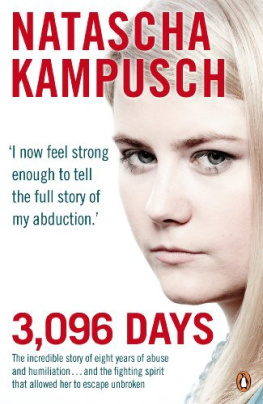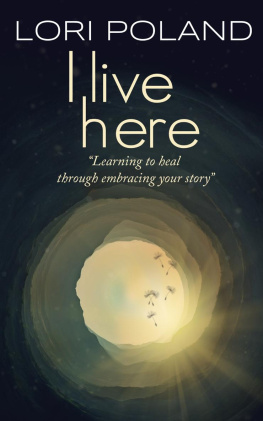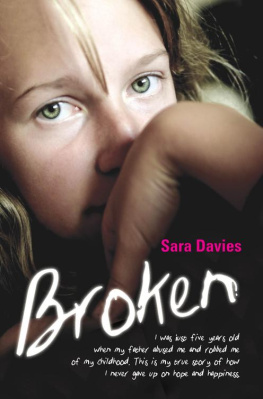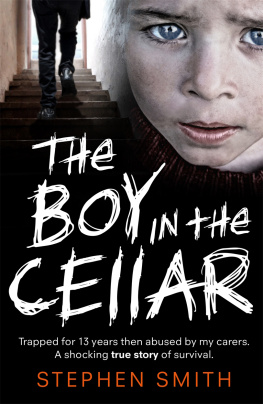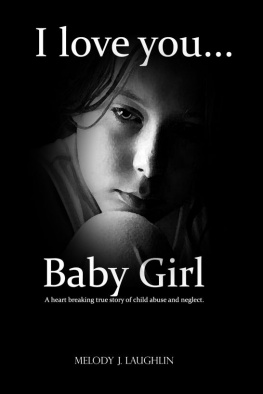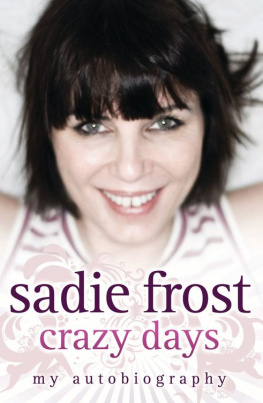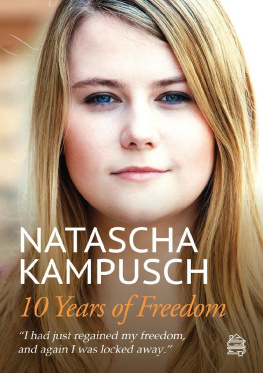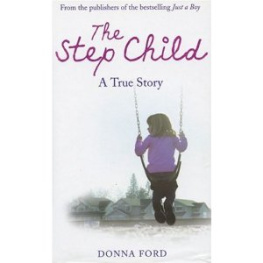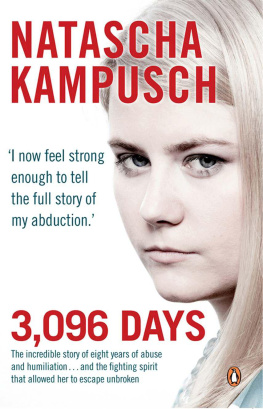On 2 March 1998 ten-year-old Natascha Kampusch was snatched off the street by a stranger and bundled into a white van. Hours later she found herself in a dark cellar, wrapped in a blanket. When she emerged eight years later, her childhood had gone. In "3,096 Days" Natascha tells her incredible story for the first time: her difficult childhood, what exactly happened on the day of her abduction, her imprisonment in a five-square-metre dungeon, and the mental and physical abuse she suffered from her abductor, Wolfgang Priklopil. "3,096 Days" is ultimately a story about the triumph of the human spirit. It describes how, in a situation of almost unbearable hopelessness, she slowly learned how to manipulate her captor. And how, against inconceivable odds, she managed to escape unbroken.
3,096 DAYS
Natasha Kampusch, with Heike Gronemeier and Corinna Milborn
Translated by Jill Kreuer
Copyright: 2010
Book Jacket:
On 2 March 1998 ten-year-old Natascha Kampusch was snatched off a street in Vienna by a stranger and bundled into a white van. Hours later she was lying on a cold cellar floor, rolled up in a blanket. When she emerged from captivity in 2006, having endured one of the longest abductions in recent history, her childhood had gone.
In 3,096 Days Natascha tells her amazing story forth the first time: her difficult childhood, what exactly happened on that fateful morning when she was on her way to school, her long imprisonment in a five-square-metre dungeon, and the physical and mental abuse she suffered from her abductor, Wolfgang Priklopil - who committed suicide by throwing himself under a train on the day she managed to make her escape.
3,096 Days is ultimately a story about the triumph of the human spirit. It describes how, in a situation of almost unbearable hopelessness, she learned how to manipulate her captor. And how, against inconceivable odds, she managed to escape with her spirit intact.
PENGUIN BOOKS
3,og6 Days
Natascha Kampusch was born on 2 February 1988 in Vienna and became victim, at the age of ten, to what proved to be one of the longest abductions in recent history. She finally gained her freedom in zooC. On the day she escaped, her abductor, Wolfgang Priklopil, committed suicide by throwing himself under a train. j,ogGDay.r is her own account of her ordeal.
Natascha, now aged twenty-two, lives in Vienna, where she is continuing her studies.
'Psychological trauma is an affliction of the powerless. At the moment of trauma, the victim is rendered helpless by overwhelming force. When the force is that of nature, we speak of disasters. When the force is that of other human beings, we speak of atrocities. Traumatic events overwhelm the ordinary systems of care that give people a sense of control, connection and meaning.' Judith Herman, Trauma and Recovery
All my best Natascha Kampusch
My Escape to Freedom
Epilogue
My Crumbling World
My Childhood on the Outskirts of Vienna
My mother lit a cigarette and took a deep puff. 'It's already dark outside. Think of all the things that could've happened to you!' She shook her head.
My father and I had spent the last weekend of February 1998 in Hungary, where he had purchased a holiday house in a small village not far from the border. It was a complete dump, with damp walls where the plaster was crumbling off. Over the years he had renovated the house, furnishing it with beautiful old furniture, making it nearly inhabitable through his efforts. Still, I was not particularly fond of going there. My father had a number of friends in Hungary with whom he spent a great deal of time, always drinking a little bit too much thanks to the favourable currency exchange rate. In the bars and restaurants we visited in the evenings, I was the only child in the group. I would sit there saying nothing, bored.
I had reluctantly gone with him to Hungary on this occasion as well. Time seemed to move incredibly slowly, and I was angry that I was still too young and had no say in how I spent my time. Even when we visited the thermal spa in the area that Sunday, I was less than overjoyed. In a rotten mood, I was strolling through the spa premises when a woman I knew asked me, 'Would you like to have a soda with me?' I nodded and followed her into the cafe. She was an actress and lived in Vienna. I admired her because she always exuded great serenity and seemed so self-assured.
Besides, I had always secretly dreamed of being an actress. After a while, I took a deep breath and said, 'You know, I would like to become an actress too. Do you think I could do that?'
She beamed a smile at me. 'Of course you could, Natascha! You'd be a great actress if that's what you really want!'
My heart leapt at that. I had truly expected not to be taken seriously or even to be laughed at - as had happened many times before.
'When you're ready, I'll help you,' she promised me, putting her arm around my shoulders.
On the way back to the swimming area, I bounded about in high spirits, humming to myself, 'I can do anything if I want it enough and believe in myself enough.' I felt more light-hearted and untroubled than I had in a long time.
However, my euphoria was cut short. The afternoon was already getting on, but my father wasn't making any move to leave the spa. When we finally returned to his holiday house, he again didn't seem to be in any great hurry. Just the opposite. He even wanted to lie down for a short while. I glanced nervously at the clock. We had promised my mother that we would be home by seven o'clock, because the next day was a school day. I knew that there would be a heated discussion if we didn't get back to Vienna on time. While he lay snoring on the couch, the clock kept ticking away inexorably. It was already dark when my father finally woke up and we began the trip home. I sat in the back seat pouting and saying nothing. We wouldn't make it on time, my mother would be angry, and everything that had been so pleasant this afternoon would be ruined in one fell swoop. As always, I would be caught in the middle. Adults always ruined everything. When my father stopped at a petrol station and bought me a chocolate bar, I crammed the whole thing into my mouth at once.
It wasn't until 8.30, one and a half hours late, that we arrived
at the Rennbahnsiedlung council estate. 'I'll let you out here, run home quickly,' said my father and gave me a kiss.
'I love you,' I muttered as always when saying goodbye. Then I ran through the dark courtyard to our stairway and unlocked the door. In the foyer there was a note from my mother next to the telephone: 'I've gone to the cinema. Be back later.' I put my bag down and hesitated a moment. Then I scribbled a short note to my mother that I would wait for her at our neighbour's flat, one floor below ours. When she came to pick me up there a while later, she was beside herself.
'Where is your father?' she barked at me.
'He didn't come with me. He dropped me off out the front,' I said quietly. It wasn't my fault we were late and it wasn't my fault that he hadn't walked me to our front door. But still I felt guilty.
Jesus Christ! You are hours late. Here I've been, worrying. How could he let you cross the courtyard by yourself? In the middle of the night? Something could have happened to you. I'll tell you one thing: You are not to see your father any more. I'm so sick and tired of this and I won't put up with it any longer!'
When I was born on 17 February 1988, my mother was thirty-eight years old and already had two grown-up daughters. She had had my first half-sister when she was just eighteen years old and the second came about a year later. That was at the end of the r96os. The two small children were more than my mother, who was on her own, could handle. She and the girls' father had divorced soon after the birth of my second half-sister. It was not easy for her to make a living for her small family. She had to struggle, took a pragmatic approach to things, was somewhat tough on herself and did everything in order to get her children through. There was no place in her life for sentimentality or a lack of assertiveness, for leisure or lightness. At thirty-eight, now that both girls were grown up, she was free from the obligations and worries of raising children for the first time in a long while. It was exactly at that time that I came along. My mother had not counted on getting pregnant again.

